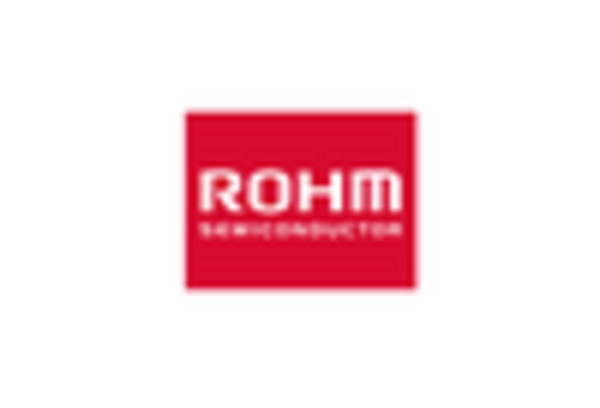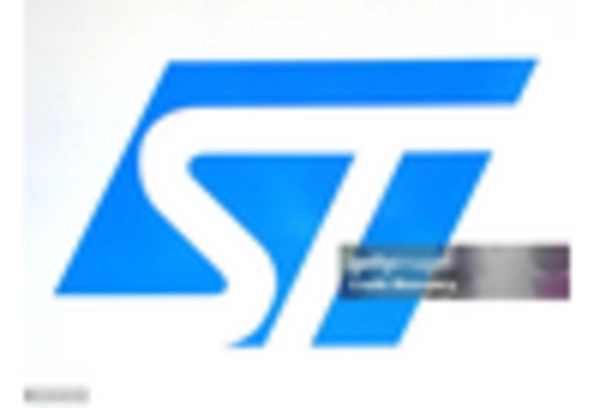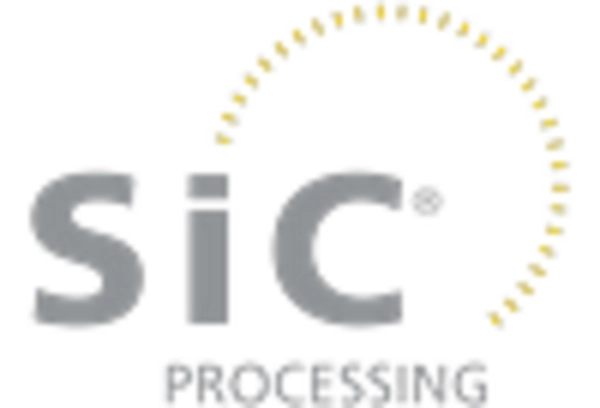Regulatory Support for Sustainable Materials
Regulatory support for sustainable materials is a key driver for the silicon carbide market in Europe. The European Union has implemented stringent regulations aimed at reducing carbon emissions and promoting the use of sustainable materials in manufacturing processes. This regulatory environment encourages industries to adopt silicon carbide, which offers lower energy consumption and reduced waste in production. The silicon carbide market is likely to benefit from these policies, as companies seek to comply with environmental standards while maintaining competitive advantages. Recent reports indicate that compliance with these regulations could lead to a market growth of around 15% in the next five years, highlighting the importance of regulatory frameworks in shaping the silicon carbide landscape.
Rising Demand for High-Performance Materials
The rising demand for high-performance materials in various sectors is significantly influencing the silicon carbide market in Europe. Industries such as aerospace, automotive, and telecommunications are increasingly seeking materials that can withstand extreme conditions while providing superior performance. Silicon carbide, with its exceptional hardness and thermal stability, is emerging as a material of choice. The silicon carbide market is poised to capitalize on this trend, as manufacturers look to enhance product durability and efficiency. Recent projections indicate that the high-performance materials market is expected to grow by approximately 10% annually, which bodes well for the silicon carbide sector as it aligns with the evolving needs of these industries.
Expansion of Electric Mobility Infrastructure
The expansion of electric mobility infrastructure in Europe is significantly impacting the silicon carbide market. As governments and private entities invest heavily in charging stations and electric vehicle (EV) support systems, the demand for silicon carbide components is expected to rise. Silicon carbide's ability to operate at higher voltages and temperatures makes it ideal for power conversion systems in EVs. Recent data indicates that the number of public charging points in Europe has increased by over 30% in the last year, reflecting a robust commitment to electric mobility. This growth in infrastructure not only supports the adoption of EVs but also enhances the silicon carbide market by creating a larger market for high-performance semiconductor devices.
Technological Innovations in Power Electronics
Technological innovations in power electronics are driving the silicon carbide market in Europe. The shift towards more efficient power conversion systems is leading to increased utilization of silicon carbide in various applications, including renewable energy systems and industrial automation. The silicon carbide market is benefiting from advancements that allow for smaller, lighter, and more efficient devices. For instance, the introduction of new manufacturing techniques has reduced production costs, making silicon carbide more accessible. Market analysis suggests that the power electronics segment is expected to grow by approximately 12% annually, further solidifying the role of silicon carbide in this evolving landscape.
Increasing Adoption of Energy-Efficient Technologies
The silicon carbide market in Europe is experiencing a notable surge due to the increasing adoption of energy-efficient technologies across various sectors. Industries are increasingly prioritizing sustainability, leading to a heightened demand for materials that enhance energy efficiency. Silicon carbide, known for its superior thermal conductivity and high breakdown voltage, is becoming a preferred choice in applications such as power electronics and electric vehicles. According to recent estimates, the energy-efficient technology sector is projected to grow at a CAGR of approximately 8% through 2027, which directly influences the silicon carbide market. This trend is further supported by regulatory frameworks in Europe that incentivize the use of energy-efficient solutions, thereby driving the silicon carbide market forward.
















